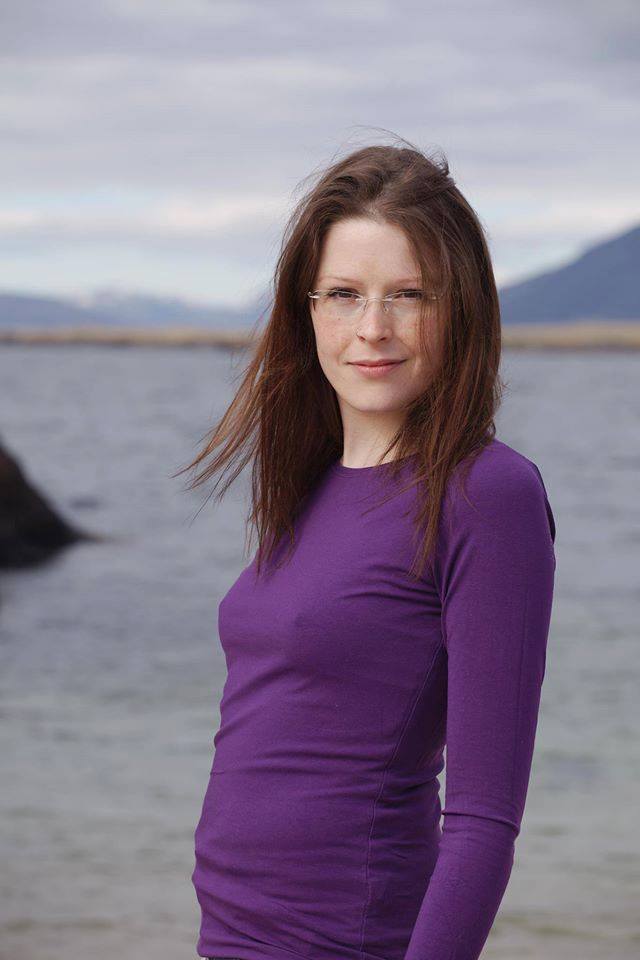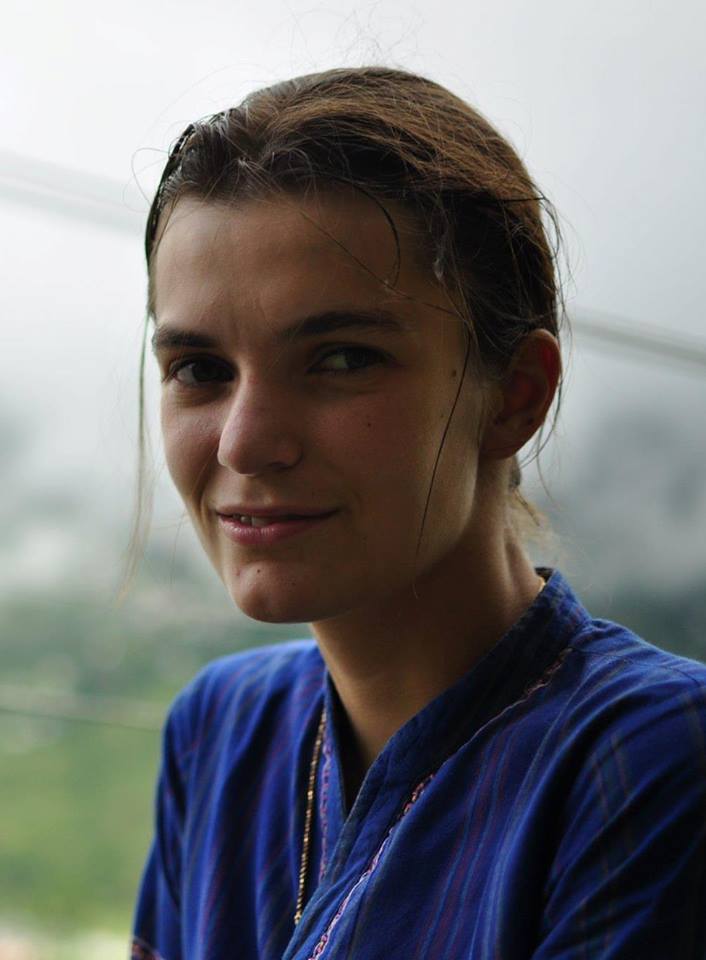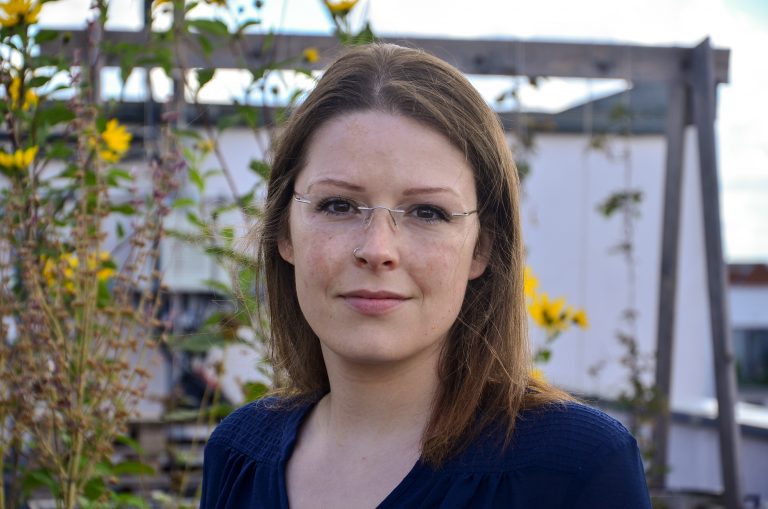The Human Rights of Intersex People: A New Approach is the name of a symposium that will be held on Saturday the 17th of February.

The symposium is organized by Intersex Iceland, Samtökin ’78 – The National Queer Organization of Iceland and Amnesty Iceland and will take place at Building Askja – Room 132 – at the University of Iceland between 12–4 pm.
GayIceland got in touch with María Helga Guðmundsdóttir, the chair of Samtökin ’78, and Kitty Anderson, the chair og Intersex Iceland, and asked them about the reasons for this symposium and how things stand in the matters regarding intersex people in Iceland today. They choose to speak in unison, so their answers are not credited to one or the other of them.
How did it come about that you decided to hold this symposium?
“Intersex Iceland was founded in 2014 and intersex people were formally recognized by Samtökin ‘78 in 2015. Since then, the two organizations have worked tirelessly to raise public awareness and push for legislative and policy change. The need for this change arises from the fact that in Iceland, many intersex people are subjected to invasive and irreversible surgery or treatment without their consent, often beginning in infancy or early childhood.
These interventions are usually non-emergency-related and have harmful effects that can last a lifetime.
It is essential that these non-consensual interventions into people’s bodies cease and instead we move towards a framework where we provide intersex individuals and their families with psychological and social support.
“Intersex children are … one of the few groups in Iceland to be subjected to non-emergency, invasive and irreversible surgery or treatment with harmful effects.”
This event is intended to give Iceland the opportunity to hear directly from world-renowned experts in this field who have conducted groundbreaking research and facilitated pioneering legislative change to advance intersex human rights. We hope that their contributions will galvanize the Icelandic government and others who are in a position to change things for the better here.”
By intersex people, they are referring to people with variations in their primary sex characteristics (e.g. chromosomes, genitalia, reproductive systems, hormone sensitivity and reproduction) and those who develop variations in their secondary sex characteristics, e.g. muscle mass, hair growth, stature, breast growth, fat distribution and Adam’s apple.
How do things stand for intersex people in Iceland today?
“Intersex people enjoy no legal recognition whatsoever in Iceland today. They are mentioned nowhere in Icelandic law and are therefore not protected against discrimination or human rights abuses. This is profoundly problematic because many intersex people have suffered serious human rights violations as a part of their healthcare. However we see a clear increase in political will to tackle this issue, with the Icelandic government being the first government in the world to clearly specify intersex rights in their government coalition agreement.

In the past four years, since the founding of Intersex Iceland, we also see a marked increase in public awareness about the existence of intersex people and the discrimination they face. Most intersex people are still deeply closeted, however. Some have had their intersex variation kept secret from them and many have been told all their life by medical professionals to keep their identity secret. We hope that with time it will become easier for people to come out and acknowledge their identity to others if and when they wish to.”
Have we fallen behind other nations regarding these matters?
“Intersex human rights violations are unfortunately very widespread and only a few countries have taken active steps to change that. Malta blazed the trail in 2015 with the world’s first legislation to protect the bodily integrity and autonomy of intersex children and adults, and Andorra, Bosnia and Herzegovina, Belgium, Finland, Germany, Greece, Kosovo, Malta and Norway have all installed equality legislation or policies. So we have fallen behind them, yes. But the appalling thing in Iceland is not that we are behind other countries. It is that we are failing to meet what should be our moral and ethical baseline: that we don’t perform unnecessary, invasive medical interventions potentially with far-reaching consequences on infants who aren’t old enough to provide informed consent.”
“The most pressing issue … is protecting the physical integrity and bodily autonomy of intersex children.”
What are the most pressing issues that need to be addressed to improve the situation for intersex people?
“The most pressing issue that needs to be addressed to improve the situation for intersex people in Iceland is protecting the physical integrity and bodily autonomy of intersex children. Intersex children are seen as a social emergency and are one of the few groups in Iceland to be subjected to non-emergency, invasive and irreversible surgery or treatment with harmful effects. Intersex youth in Iceland have also been subjected to needless gonadectomies which the World Health Organisation classifies as coercive sterilisation.

There is a dire need to move from the current practice towards one based on psycho-social support. The problem is not with these children not fitting into society but rather that society needs to make space for them to grow and develop and make their own choices about their own bodies. The experiences of intersex people often echo closely the experiences of people with disabilities who in the past also were subjected to coercive sterilisation and invasive surgical procedures to change their appearance. No child should be subjected to non-emergency, invasive and irreversible surgery or treatment with harmful effects under any circumstances.
Legal protections on the basis of sex characteristics must be installed in the fields of equality and discrimination, hate crime and hate speech in addition to ensuring that intersex asylum seekers that seek asylum in Iceland are provided with competent and educated personnel to handle their cases.”
Is there some new legislation in the matters regarding intersex people in the making?
“The new government coalition has pledged to enact legislation to protect the rights of intersex people in accordance with the intersex resolution of the Parliamentary Assembly of the Council of Europe from 2017. This indicates that the government is paying close attention to the newest developments in the field of intersex human rights and willing to put them into practice. This is a cause for great optimism and we hope to celebrate the passing of groundbreaking legislation in this field before long.”
For whom is the symposium intended?
“The symposium is intended for all those concerned with intersex issues, particularly intersex children’s issues. Members of parliament, medical professionals, employees of schools and daycare, and all those who work to promote the welfare and rights of children are encouraged to attend. The organizers would also like to encourage attendance by those who are working on similar issues in other countries, particularly representatives of intersex and LGBTI organizations.”
Special guests
Special guests at the symposium are Ruth Baldacchino, co-chair of ILGA-World and director of the Intersex Human Right Fund at Astraea – The Lesbian Foundation for Justice. They played a key role in the passing of the world’s most advanced legislation for trans and intersex rights, which was passed in Malta in 2015.
Piet de Bruyn, general rapporteur on the rights of LGBTI people to the Council of Europe and author of the CoE’s report on intersex human rights.
Laura Carter, research and policy advisor on sexual orientation and gender identity at Amnesty International. She authored AI’s report “First, Do No Harm” on the situation of intersex people in the Danish and German healthcare systems.


